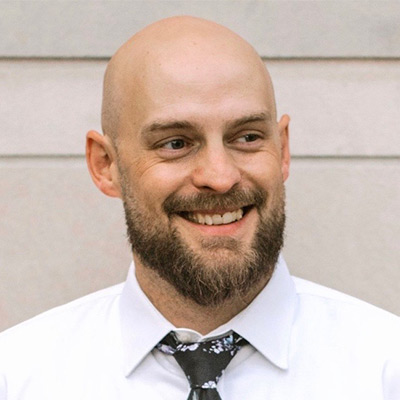It is August 24, 2019, just after 10:30 PM. Three Aurora police officers responded to a call about a man who was wearing a mask and waving his hands as he walks. That man is Elijah McClain. He has anemia and sometimes wears an open-faced ski mask because he gets cold. He has done nothing wrong, and no one suspects him of any crime. Someone just thinks he “looks sketchy.”
When the cops try to stop him, Elijah McClain is scared because he’s seen this situation end in tragedy so many times before. But Mr. McClain knows that he has done nothing wrong and he just wants the situation to be over, so he says that he has right to continue home. The officer disagrees and grabs him by the arms. Another officer approaches. Mr. McClain pleads, “I am an introvert, please respect the boundaries that I am speaking. Leave me alone.” The cops restrain him and tell him to stop resisting. He pleads with officers to let go of him.
Then officers take him to the ground. They accuse him of reaching for one of their guns. There is no support for this claim; all three of their bodycams had fallen off in the grass. They threaten to let a police dog bite Mr. McClain if he doesn’t “stop messing around.”
One of the officers places Mr. McClain in a carotid hold, restricting blood flow to his brain. He loses consciousness. He regains consciousness only to be placed in a carotid hold again. Three officers are on top of Mr. McClain who is only 5’6” and 140 pounds. He’s sobbing and vomiting on the ground, something he has done several times while restrained because he can’t breathe correctly.
When the paramedics arrive, they give Mr. McClain a “therapeutic” dose of ketamine; his body falls limp. On his way to the hospital, Mr. McClain suffers a heart attack. Three days later, his family takes him off life support and Elijah McClain is dead.
Although it is medically unclear what exactly caused Mr. McClain’s death, it is very clear that had the police not stopped Mr. McClain that night, had they not taken him to the ground with excessive force, had they not utilized a chokehold which has now been banned, Mr. McClain would still be alive.
The three officers who responded that night were placed on administrative leave. They were not fired. Charges were not filed. They have all since been reinstated.
It is easy to forget that these tragedies can happen in any neighborhood anywhere in the country. It is easy to think that you are absolved from action because nothing like this has happened where you live, yet. It is easy to believe that your community is immune, that the cops are good, and that justice where you live is insulated from the realities of a broken system.
But what is easy is not what is right or what is just. Let us resolve that we will always be aware that injustice can strike in any place and at any time, and that we will raise our voices against those injustices when they occur. This will not be easy. It will instead be difficult. We will often be scared and we will sometimes fail. But let us resolve also that we will never be content until the justice you receive is not dependent upon the color of your skin, until everyone can trust that the law and the police are acting in their best interests, and until racism in all its forms is retired to the past. Let us resolve these things because we know that if we speak loudly enough and act decisively enough, that we can make a difference.
This week, the Aurora City Council reopened Elijah McClain’s case. It approved an independent investigation to be undertaken by an investigator with a background in civil rights. There is again a chance that Elijah McClain may finally receive justice. But that outcome is far from certain and so we must not yet be silent. Instead, it is a step in the right direction. It is proof that there is hope.

Mr. Krizman is a criminal defense attorney in Denver, Colorado. He specializes in providing relentless defense for domestic violence, DUI, and drug crimes. He is a former public defender who has also worked for a district attorney and is licensed in the State of Colorado, and the United States Federal Court, District of Colorado. Mr. Krizman is a member of the Colorado Criminal Defense Bar, Colorado Bar Association, Denver Bar Association, and Arapahoe County Bar Association. A Colorado native, he has a law degree from the University of Denver Sturm College of Law, and a bachelor’s degree in Government and World Affairs from the University of Tampa. Call him today at 720.819.7317.
